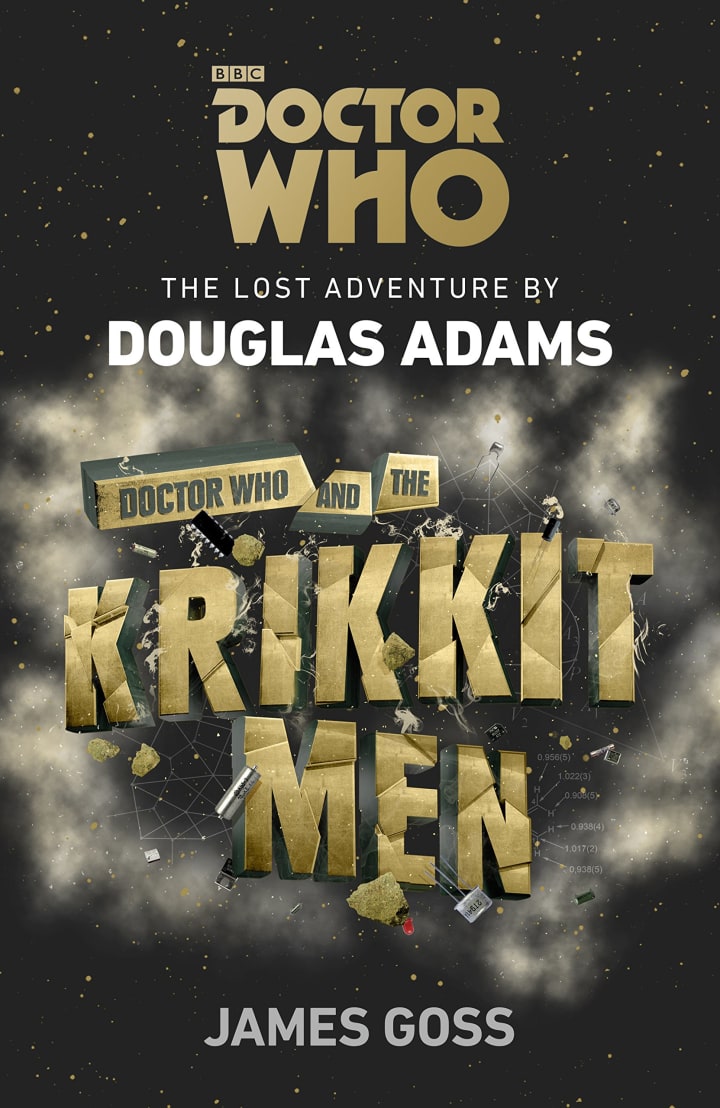Review: 'Doctor Who and the Krikkitmen'
How does James Goss' novelization of Douglas Adams' "lost adventure" stack up?

Before 2005, there was no better-known writer for Doctor Who than Douglas Adams, the man who became famous for The Hitchhiker's Guide To The Galaxy, was Doctor Who's one-time script editor and responsible in part for the Fourth Doctor classic City Of Death. There were also the stories The Pirate Planet, Shada (which, despite never finishing its recording in 1979, has now become the most completed Doctor Who story of all time), and The Kirkkitmen. For decades, all that most fans knew of the latter story was that it may or may not have been an intended Doctor Who movie and instead, Adams (never one to waste ideas) used elements of it for his later novel Life, The Universe, And Everything. Now, Krikkitmen has become a Who story after all, a novel published by BBC Books. How does this version of it stand up?

If you are one of the millions who read Adams' third Hitchhikers novel, you'll likely recognize many of the plot points and elements at play. The basics of the story are the same from the robotic Krikkitmen to their creators on a planet hidden in a dust cloud whose discovery of the rest of the universe drove them on a mad crusade to destroy it. The novel though isn't merely substituting the Fourth Doctor (the one with the scarf, teeth, and curls), Romana, and robot dog K-9 for Arthur Dent, Ford Prefect, and the Hitchhikers cast. The destination may be the same, the journey, however, is significantly different from trips to Gallifrey to a meeting with the intergalactic conqueror The Great Khan and even a return to elements from a previous Adams Who story.
Even better is that it often reads like vintage Adams. As was the case with the 2012 novelization of Shada by Gareth Roberts, much of the novel's success lies in how much it can capture Adams' style without being a bad imitation of it. James Goss (who previously novelized Adams' other two Who stories) manages to do so here splendidly, with much of the novel capturing Adams' humor with laugh-out-loud moments alongside a science fiction caper plot. Indeed, as the first two appendixes reveal, Goss was keen to include as much previously unpublished Adams material as possible and the lines between what is Goss and what is Adams being difficult to discern. It's something that makes the novel of interest to fans of both the series and Adams' work.

The Krikkitmen TARDIS Crew as Pictured on the Shada DVD Cover
Goss' effort to incorporate so much Adams material is also a slight problem. Scenes such as those with Great Khan, while fun to read, add little to the narrative. Indeed, the last forty pages of the novel aren't, in fact, the novel at all, but three appendixes with one being the original storyline for the project and another with Goss explaining better the origins of the material. That isn't even the novel's worst issue.
Krikkitmen as a novel also suffers from something fans of classic Who will likely recognize. Remember how often six-part serials could drag around episodes three to five in an attempt to drag the plot out as much as possible? This novel is no exception to that rule and, perhaps more surprisingly, that lies not with Adams but with Goss. During the quest portion of the narrative and once the plot starts working towards the finale, Goss begins inserting new material of his own (including a pair of gentlemen who show up trying to launch a new religion). In the Adams vein, like the need to include as much of the original writer's material, it doesn't add much. Indeed, it sends the narrative off on tangents including one involving Romana and Margaret Thatcher, of all things! With the narrative pace reduced to a crawl, it also makes an otherwise pleasant read into a bit of a chore at times which is sad.
It's sad because The Kirkkitmen is a genuinely fun read a lot of the time. It's a fascinating alternate version of a story that Adams fans thought they knew and is more than a simple reworking of it. It's only brought down both by what reads like an effort to make a designated word count and, to a lesser extent, a need to fill it in with as much Adams material as possible. There is such a thing as too much of a good thing, and Goss' work here is proof of that fact. At the end of the day, what fans of Who and Adams will find is a decent novel but not a great one.
About the Creator
Matthew Kresal
Matthew Kresal was born and raised in North Alabama though he never developed a Southern accent. His essays have been featured in numerous books and his first novel Our Man on the Hill was published by Sea Lion Press in 2021.






Comments
There are no comments for this story
Be the first to respond and start the conversation.